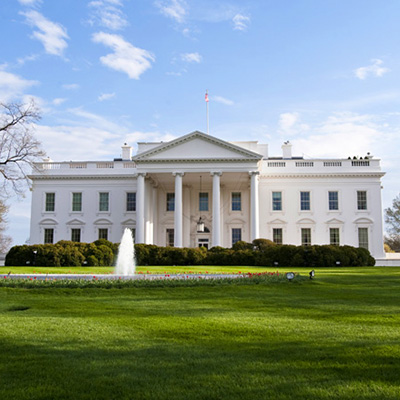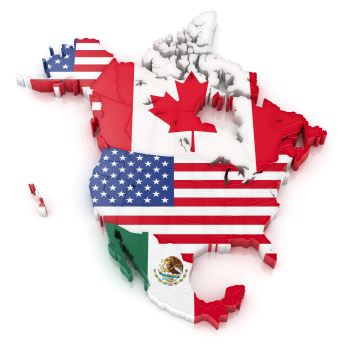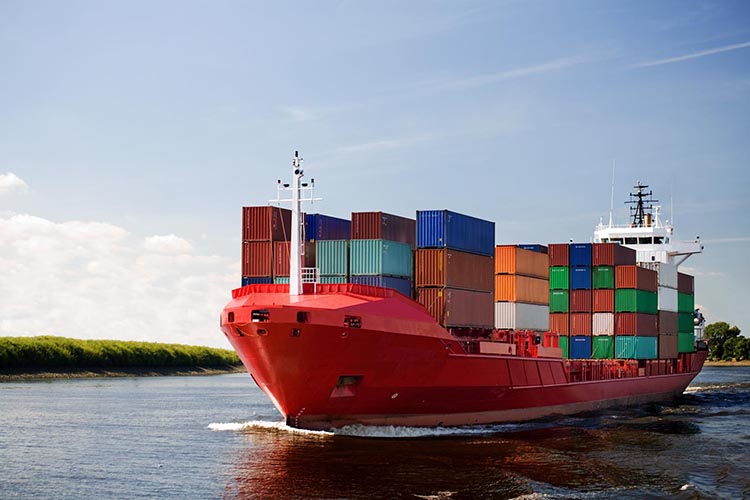
FTZ’ine April 2020
April 2, 2020
FTZ’ine June 2020
June 2, 2020We Could All Use Some Angels Right Now
The Blue Angels (and Thunderbirds) were in town this past weekend to salute the heroic work of first responders and health care workers around the country. The hospital flyover by the Navy and Air Force precision air teams provided a much-needed distraction in your Nation’s Capital.
Then it was back to reality. Employment losses not seen in 100 years. Negative prices for American crude oil. Death and infection rates that stubbornly refuse to subside. US – China relations degrade anew on trade and military fronts.
Despite a lack a clear improvement against the spread of the virus, various parts of the country are now working through the painful process of trying to restart their economies. This month’s issue chronicles several of the factors making this a difficult challenge. The FTZine staff hopes all will be well, and all will be vigilant.

Top Story: Deferral of Customs Duties Hard For FTZs To Access
On April 19th President Trump signed an Executive Order including a 90-day extension of the time to make certain payments to U.S. Customs. Most FTZs will have a difficult time accessing this deferral provision. Requirements under the Executive Order and the ensuing Temporary Final Rule issued by Customs and Border Protection include:
The importer need not file additional documentation with CBP to confirm eligibility, but must maintain such documentation for possible CBP review
Tech Tip
Are you new to self-filing and want to make your own payments under CBP’s Periodic Monthly Statement (PMS) program? Even if your broker previously filed PMS payments, you still have some set-up work with CBP to make those same payments via PMS yourself.
Periodic Monthly Statement is a feature of the Automated Commercial Environment (ACE) that simplifies the payment and collection of duties and fees. PMS allows users to consolidate duties and fees into a single payment the following month. That 15 – 45 day deferral can make your Finance department very happy. So, what do you need to do to get set up?
If you are switching to self-filing, you will need your own filer code from your local CBP office, and set up your Automated Clearinghouse (ACH) Debit or Credit account to permit payment directly to the U.S. Treasury. Then you must ask the ACE Help Desk to link your ACE Top Account to your new filer code if that has not been done already. Finally, you can then request that the filer code be activated for PMS. Have questions? We’re here to help. Contact us at Info@iscm.co.


Are Foreign-Trade Zones A Key To Reopening The Economy?
Relations Between US and China Show No Signs of Improving For FTZs


US Trading Partners Also Suffer In The Pandemic
US Land Borders Remain Closed to Non-Essential Traffic
The U.S. and Canada agreed to keep the northern border closed to nonessential travel for another 30 days.


FTZ Board Activity
- Warehouse Specialists, LLC received approval for subzone status for its new facility as subzone 107D in Council Bluffs, Iowa. MORE
- Mitsubishi Electric Automotive America, Inc. submitted an application for subzone status for its facility within FTZ 47 in Maysville, Kentucky. MORE
- Ball Metal Beverage Container Corporation received the authorization of production activity for aluminum cans and briquettes within FTZ 277 in Goodyear, Arizona. MORE
- BLU Products, Inc. submitted a notification of proposed production activity for cellular phones, accessories, and components within FTZ 32 in Doral, Florida. MORE
- Northern Mississippi FTZ, Inc. received approval to reorganize Foreign-Trade Zone 266 under the alternative site framework with a service area of DeSoto County, Mississippi. MORE
- Oldach Associates, LLC submitted an application for subzone status for its facility within FTZ 61 in Catano, Puerto Rico. MORE
- Pacific Industrial Development Corporation submitted a notification of proposed production activity for zeolites, specialty alumina products, rare earth powders and aqueous solutions within FTZ 70 in Ann Arbor, Michigan. MORE
- Waters Technologies Corporation received approval for subzone status for its new facility as subzone 27P in Milford, Massachusetts. MORE
- Waters Technologies Corporation received authorization of production activity for chromatography tubing assemblies within FTZ 27P in Milford, Massachusetts. MORE
- Oceaneering International, Inc. received authorization of production activity for sub-sea distribution parts and systems within FTZ 65 in Panama City, Florida. MORE
- Winnebago Industries, Inc. received approval for subzone expansion for its facility in subzone 107A in Forest City and Charles City, Iowa. MORE
- Mitsubishi Caterpillar Forklift America, Inc. received authorization of production activity for forklift/work trucks and related subassemblies/kits within FTZ 84 in Houston, Texas. MORE
- The Arizona Regional Economic Development Foundation submitted an application for the expansion of the alternative site framework service area of FTZ 139 in Sierra Vista, Nevada. MORE
- Lilly del Caribe, Inc. submitted a notification of proposed production activity for pharmaceutical products within FTZ 7 in Carolina, Puerto Rico. MORE
We Could All Use Some Angels Right Now – The Blue Angels (and Thunderbirds) were in town this past weekend to salute the heroic work of first responders and health care workers around the country. The hospital flyover by the Navy and Air Force precision air teams provided a much-needed distraction in your Nation’s Capital.
Then it was back to reality. Employment losses not seen in 100 years. Negative prices for American crude oil. Death and infection rates that stubbornly refuse to subside. US – China relations degrade anew on trade and military fronts.
Despite a lack a clear improvement against the spread of the virus, various parts of the country are now working through the painful process of trying to restart their economies. This month’s issue chronicles several of the factors making this a difficult challenge. The FTZine staff hopes all will be well, and all will be vigilant.

